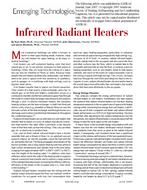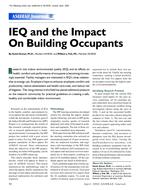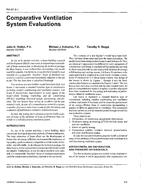A two-tiered process incorporating numerical analysis to evaluate HVAC systems is implemented in this paper. At the HVAC component level, the boundary element method is used to predict the transfer matrix for complex three-dimensional components, such as lined/unlined plenums and elbows. The methodology has been validated on HVAC plenums in a companion paper and is extended to the analysis of lined/ unlined elbows. Results compared favorably with the ASHRAE Handbook. The transfer matrix approach is then used to predict insertion loss for built-up systems with interconnecting ductwork. This approach assumes plane wave behavior at the inlet and outlet of each HVAC component, so it is limited to the low-frequency regime. One important finding was that insertion loss was found to be insensitive to changing source and termination impedance above 200 Hz.
Units: Dual
Citation: ASHRAE Transactions, Vol. 113, pt 1, Dallas 2007
Product Details
- Published:
- 2007
- Number of Pages:
- 7
- File Size:
- 1 file , 1.4 MB
- Product Code(s):
- D-DA-07-003


